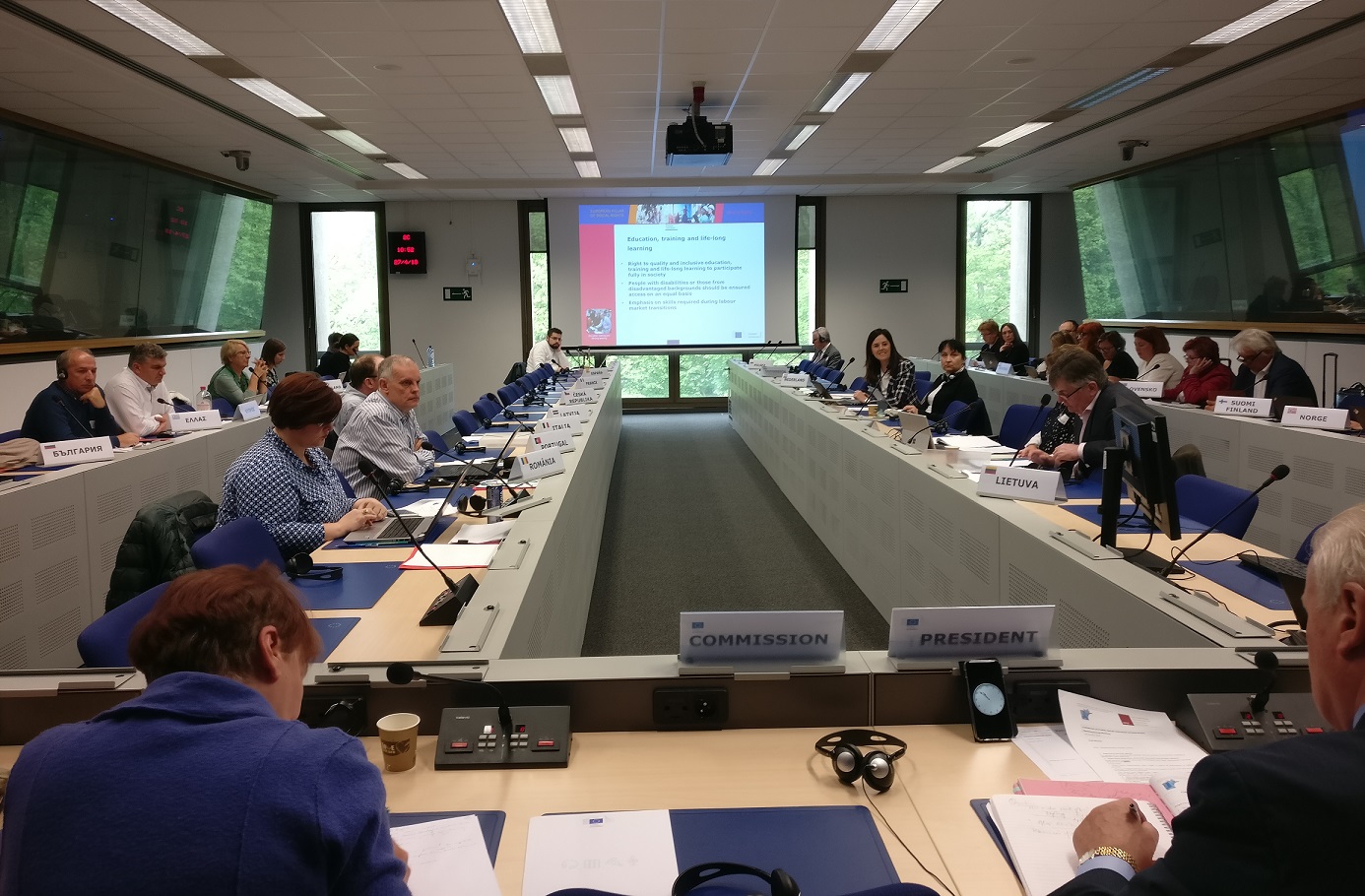ESSDE Working Group: education in the digital era and financing challenges in the next EU budget on education and training
Published:
On 27 April 2018, the Working Group meeting of the European Sectoral Social Dialogue in Education (ESSDE) took place in Brussels. The meeting addressed the need for digital skills for students and teachers for inclusive education, the European digital education action plan, the use of European Social Funds (ESF) on education and training, and the overall Multi-annual Financial Framework (MFF) post-2020 as a key tool for Europe to reach the Sustainable Development Goals (SGDs) by 2030. The Working Group gathered national experts and delegates from member organisations of both the ETUCE and the European Federation of Education Employers (EFEE), who discussed and shared national experiences and good practices on topics of the Work Program 2018-2019.
The social partners recognised that although the use of internet and of other digital tools is massively widespread, many users still lack the digital skills to critically use them. Developing such skills in children and adults is one of the biggest challenges of teaching in the 21st century. The European Digital Education Action Plan is the institutional answer from the European Commission, to this challenge. Delegates complemented the presentation by describing their national contexts with regard to digital skills and inclusive education, perceived as one of the key priorities to reduce inequalities across Europe as monitored by the Country Reports of the European Semester and the Social Scoreboard which maps the implementation of the European Pillar of Social Rights.
Looking at the MFF post-2020 and the use of European funds on education and training, and on social dialogue capacity building, several good practices on the use of the European Social Fund (ESF) for such purposes were presented by education trade unions and education employer organisations. With a view to learn from the past, ETUCE representatives also pointed out at the worrying trend of European funding replacing national funding which causes education systems to become more dependent on European funds for the provision of quality education as well as at the inappropriate melting practices between EU public and private funding. The representative from the European Commission, DG Employment, reassured working group participants that the European Commission will not promote Public-Private Partnerships (PPPs) in areas where these are not suited, such as education and public services. Some insecurity is still surrounding the MFF post-2020, e.g. the decrease in funds caused by the Brexit, the conditioning of the allocation of the funds to the implementation of the country specific recommendations and the complex management of the funds. Ahead of the new proposal for the MFF post 2020, delegates stressed the importance of spending every single EU public resource, whether in education and/or in capacity building projects, in a sustainable and equitable manner, in order for Europe to reach its SDGs targets. The ESSDE partners agreed to continue working on ensuring that EU funds in education and training effectively contribute to quality education in a 2030 perspective.